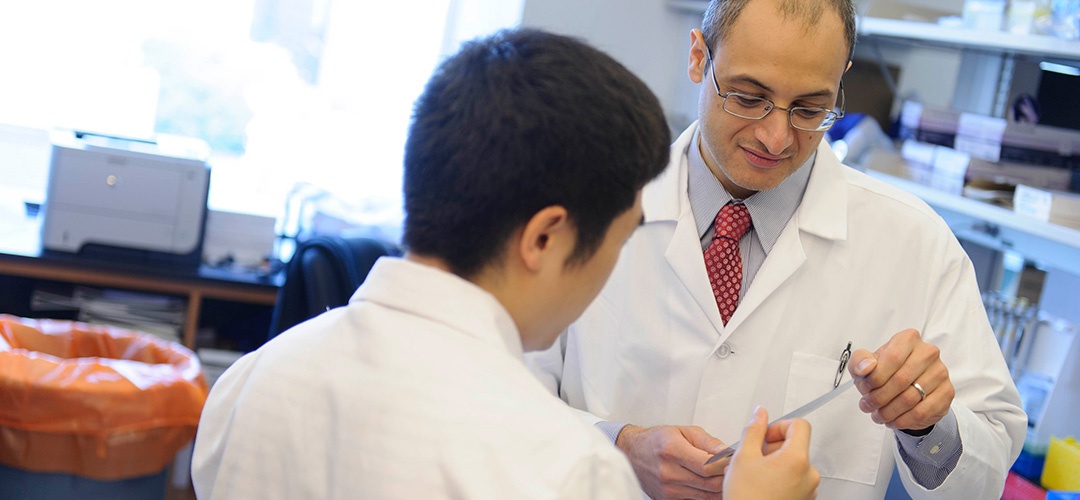Blood Cancer Treatments Leap Forward
Q & A with Omar Abdel-Wahab, MSK Hematologic Oncologist
Did you always know you wanted to pursue a career in cancer medicine?
I have always known I wanted to focus on cancer, and I was drawn to blood cancers because there are so many different types. Diagnosing them is complex, and I liked that challenge. I came to MSK in 2007 as a clinical fellow in hematology-oncology, with the intention of becoming a doctor who primarily takes care of patients. But then I did a lot of exciting lab work with physician-scientist Ross Levine on the genetics of leukemia and other blood cancers. We discovered a lot in a very short time.
What blood cancer treatments did you collaborate on that received FDA approval in 2017?
One is enasidenib, a first-of-its-kind drug for patients with refractory or relapsed acute myeloid leukemia (AML) who have the IDH2 mutation and who became resistant to other treatments. Twelve percent of AML patients eventually face this situation. Previously they had no treatment option—now they do.
The other drug is vemurafenib, and it inhibits the BRAF gene mutation. This drug was being used to successfully treat melanoma, and later, through our work here, hairy cell leukemia. And then we found the BRAF mutation in Erdheim-Chester Disease (ECD), a blood cancer so rare that patients number in the hundreds.
What are you working on now?
I am researching malfunctions in protein particles called spliceosomes, which may lead to cancer. Spliceosomes perform the same purpose in all living beings — they allow genes to make proteins, so cells behave as they should. For some reason, the splicing machinery is mutated in some cancers. Spliceosome mutations are common in blood cancers. Their universality is what makes them interesting to investigate.
Are you researching ways to prevent cancer?
We recently discovered spliceosome mutations in the blood cells of cancer patients. The mutations are often present even before the patient is sick, indicating a pre-leukemia condition.
How important is philanthropy to funding your research?
In 2012, I began to run my own lab at MSK. But even before that, I had to think strategically about ways to pay for my research. Foundations and private donors have always been instrumental. The NIH does offer a transition-to-independence award that I applied for and received, but it won’t fund a new investigation unless you have generated supporting data for your idea. To get there, you need funding from somewhere else.
Philanthropy is the seed capital for the next wave in cancer treatments. Most great scientists make the breakthroughs that define their careers when they are in their 30s. The average NIH grant recipient is in their 40s. Donors not only helped launch my career, they now fund about 50% of my work.
MSK offers a superb infrastructure for scientists, giving me the sustained time to build a research portfolio and apply for additional grants. At MSK, we can develop treatments that outsmart cancer because people give generously.
Commit to outsmarting cancer DONATE NOW
